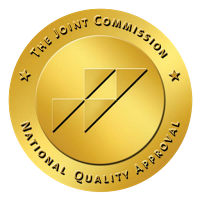Get Help With Your Addiction

What Disorder Do Most Alcoholics Have?
Explore the link between alcoholism and prevalent disorders. Dive deep into research, understand the symptoms, and learn about treatment options. Get informed about the underlying issues faced by many alcoholics.
The Prevalence of Co-Occurring Disorders in Alcoholics
When someone is dealing with both alcoholism and another mental health disorder simultaneously, it can complicate their recovery process. Co-occurring disorders can range from anxiety and depression to more severe conditions like bipolar disorder or schizophrenia.
The presence of these disorders can affect the effectiveness of treatment for alcoholism, as it requires a holistic approach that addresses both conditions. Understanding the prevalence rates and impact of co-occurring disorders is crucial in providing comprehensive and tailored treatment for individuals struggling with alcoholism.
Do you know what percentage of alcoholics have co-occurring disorders?
It’s estimated that about 40 to 60 percent of individuals with alcohol use disorder also have co-occurring mental health disorders. These prevalence rates highlight the significant impact that co-occurring disorders have on the treatment of alcoholism.
Common Mental Health Disorders Among Alcoholics
You should definitely be aware that common mental health disorders, such as anxiety and depression, often co-occur with alcoholism.
Understanding the impact of mental health on alcohol addiction is crucial in order to provide effective treatment options for co-occurring disorders. Research has shown that individuals with mental health disorders are more likely to develop alcohol addiction as a means of self-medication or coping with their symptoms.
The Vicious Cycle of Dependency & Worsening Mental Health
Alcohol can exacerbate these mental health issues in the long run, leading to a vicious cycle of dependency and worsening mental health. It’s important to identify and address both the mental health disorder and the alcohol addiction concurrently in order to achieve successful outcomes.
Integrated treatment approaches, such as dual diagnosis treatment, have been proven to be effective in addressing co-occurring disorders.
These programs focus on providing comprehensive care that addresses both the mental health and addiction aspects, leading to better outcomes and improved quality of life for individuals with co-occurring disorders.
Understanding the Connection Between Alcoholism and Co-Existing Conditions
If you want to fully understand the connection between alcoholism and co-existing conditions, it’s important to educate yourself on how these conditions can interact and impact one another. Exploring the impact of co-existing conditions on alcohol recovery is crucial in identifying effective treatment approaches for individuals with co-occurring disorders.
When someone struggles with both alcoholism and another mental health disorder, such as depression or anxiety, it can complicate their recovery journey. These co-existing conditions can exacerbate one another, making it harder for individuals to achieve and maintain sobriety.
Therefore, it’s essential for healthcare professionals to take a holistic approach when treating individuals with co-occurring disorders. By addressing both the alcohol addiction and the co-existing condition simultaneously, treatment can be more effective in promoting long-term recovery.
Research shows that integrated treatment approaches, which involve addressing both conditions concurrently, have been successful in improving outcomes for individuals with co-occurring disorders. If you or a loved one are struggling with drug or alcohol addiction call Sanctuary Recovery Centers in Phoenix, Arizona to get the best treatment plan to start the healing process.
The post What Disorder Do Most Alcoholics Have? appeared first on Sanctuary Recovery Centers.

Call 1 (844) 798-TRUE and Start Your Journey to Recovery Today!

Office Address
11645 N Cave Creek Rd
Phoenix, AZ 85020
Other Crisis Contacts
National Suicide Prevention Line:
1-800-273-8255
Call Toll Free
Local Phone Number
(480) 309-9945
Fax
(480) 281-5225
Office Hours
M-F: 8:30 AM – 5:30 PM
Fentanyl Addiction Specialist
Please reach out with questions or concerns regarding you or a loved one in fentanyl addiction.
If this is an emergency, please call 911 or go to your nearest emergency room.










